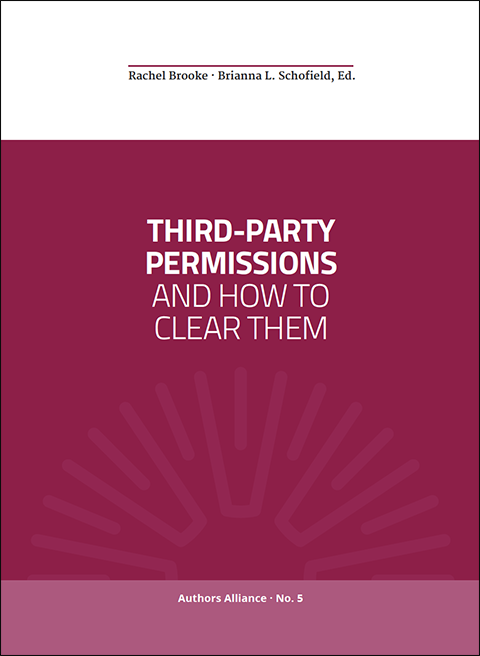This guide is intended for educational purposes and should not be considered legal advice, which can only be provided by a licensed attorney.
U.S. copyright law automatically vests the author of a creative work with certain exclusive rights to their work. However, scholarship is a necessarily collaborative and constructive endeavor, in which knowledge is produced by building upon other people's previous work and research. It is therefore important to consider both your own rights as the creator of scholarly work (for more information, see the Author Rights page of this guide) and the rights of other authors whose copyrighted works you use and cite.
In general, facts, information, and data are not protected by copyright, so merely restating these things does not pose a risk of copyright infringement. However, when facts, information, and data are organized and presented in a way that requires creativity--for example, as a report, article, graphic, or software--they become an original work subject to copyright protection.
When it comes to using others' work in your scholarship, the following are generally acceptable:
If you need to use copyrighted material beyond these parameters, making sure that you do so in a responsible and legal manner will require a bit more legwork.
First, you should verify that the material is in fact protected by copyright. If the work is in the public domain, it is no longer subject to copyright protections and you are free to use and reproduce it freely.
Next, explore whether the work's author has licensed it using a Creative Commons license. CC licenses provide authors with a simple, standardized way to preemptively give permission to share and use their works. There are six different CC licenses, and each one lays out the requirements and conditions for reusing the work in question.
If the material you want to use is not in the public domain or licensed with a Creative Commons license, you can explore the possibility of obtaining permission from the copyright holder, or you can use the work under the provisions of the Fair Use doctrine.
It may sometimes be difficult to identify a work's copyright holder or get in touch with them; they may also request that you pay a fee or follow certain conditions. Requesting permission to use a work does not preclude you from using it under fair use, even if the copyright holder denies your request.
Portions of the above text were adapted from "Copyright for Research" by Laura Wilt, National Transportation Library.



 Third-Party Permissions and How to Clear Them
by
Rachel Brooke and Brianna Schofield
Third-Party Permissions and How to Clear Them
by
Rachel Brooke and Brianna Schofield
